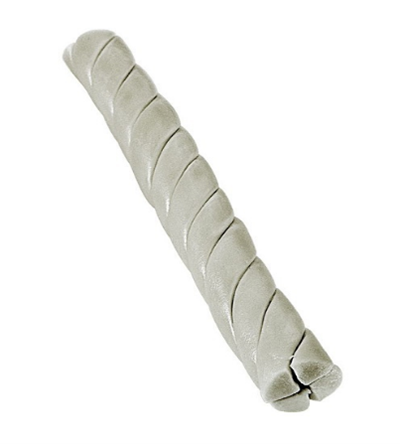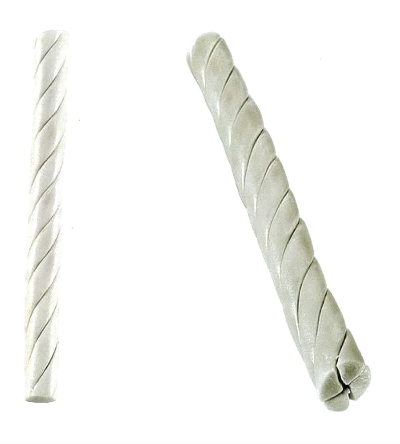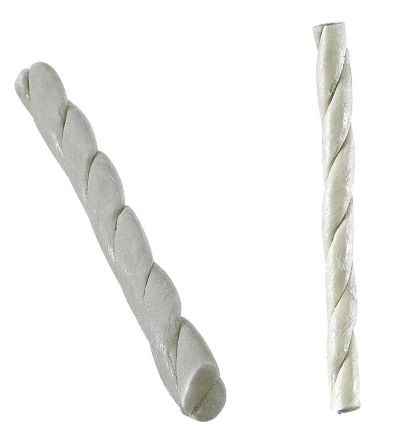German Patent Court Invalidates 3D Trade Marks for Twisted String Cheese

In line with the case law of the European Courts on non-conventional trade marks, the German Patent Court has recently invalidated three national German trade mark registrations for twisted string cheese on the basis that the marks are descriptive. This was despite the fact that the marks in question were considered to be distinctive by the German Patent and Trade Mark Office and initially proceeded to registration without difficulty. We consider the decision in the context of EU non-conventional trade marks more generally.
Background
The following three 3D trade marks were filed as applications in Germany by Muratbey Gida Sanayi ve Ticaret A.S. (Muratbey) on 22 June 2018 and were registered on 6 March 2019.
German National Trade Mark Number |
Trade Mark |
302018015614 |
 |
3020180156157 |
 |
3020180152798 |
 |
All three marks protect “cheese; processed cheese” in class 29. On 29 May and 4 June 2018, Muratbey filed the same applications in the EU. The EUIPO rejected the EUTM applications on the ground that the marks lack distinctiveness. Shortly after that, a third party anonymously filed invalidity applications against Muratbey’s registrations in Germany set out above. The German Patent and Trade Mark Office (GPTO) rejected the invalidity applications. The third party then appealed the GPTO decisions to the German Patent Court.
Court decision
The German Patent Court ultimately held that the trade marks are descriptive and therefore invalid. In re-iterating the recent case law of the CJEU, it held that only a 3D mark, consisting of the appearance of the product itself, which departs significantly from the norm or customs of the sector and which therefore fulfills its essential function of indicating commercial origin is one which is not devoid of distinctive character. As per the General Court of the EU in the Guerlain lipstick product case, shapes which are mere variants of products already on the market do not meet the threshold for distinctiveness. In addition:
- The Court rejected the argument that the shape of the goods gives substantial value to them as cheese and processed cheese are staple foods.
- The shape of the cheese alone is not a key aspect impacting on the customer’s purchasing decision.
- Regarding the technical nature of the shape, the Court was not satisfied with Muratbey’s explanation as to how the twisted shape prevents the cheese strings from falling apart. Ultimately, the Court took the view that twisting the cheese strings is not sufficient to keep them from falling apart.
Descriptiveness
On the question of descriptiveness, the German Patent Court held that special circumstances existed which rendered the trade marks descriptive. For example, and in addition to Muratbey’s television commercials and attendance at the ANUGA food fair in Germany eight months prior to the application date of the trade marks, the Court found that twisted string cheese products were common, at the relevant filing date of Muratbey’s marks in the following territories:
- Ireland
- The UK
- Australia
- The US
- Mexico
- Armenia
- Georgia
- Syria
- Russia
- Slovakia, and
- Turkey
Moreover, the Court took into account the General Court of the EU’s findings regarding Muratbey’s identical EUTM applications ie that the marks are variants of a product shape which are already present in the EU. On the whole, the Court was satisfied that twisted string cheese was likely to be marketed to a significant extent in the shapes of the contested marks in the future in Germany, and for that reason, the marks were held to be descriptive.
Comment
The decision of the German Patent Court reinforces the difficulties with registering shape marks as trade marks before the EUIPO. Although the applications were registered initially when filed at the GPTO, they were refused at the examination stage by the EUIPO. This shows the different approaches adopted by different trade mark offices and the higher bar to meet to be granted an EUTM registration. As a consequence of this decision, brand owners should keep in mind that they will not be entitled to trade mark registrations for the shapes of their key products where either:
- The shape does not deviate significantly from the norm or customs of product shapes in the relevant sector, or
- If there are special circumstances which show that competitors have a need to also use the same shape
Finally, the case is an excellent illustration of how a trade mark which was deemed to be distinctive at the time of the initial filing in one territory, can also be deemed to become descriptive at the time of a later filing. In addition, the case highlights that trade mark registrations can become vulnerable due to external market conditions unrelated to the representation of the mark itself.
For more information on successfully protecting your organisation’s intellectual property rights, contact a member of our Intellectual Property team.
The content of this article is provided for information purposes only and does not constitute legal or other advice.
Share this:



